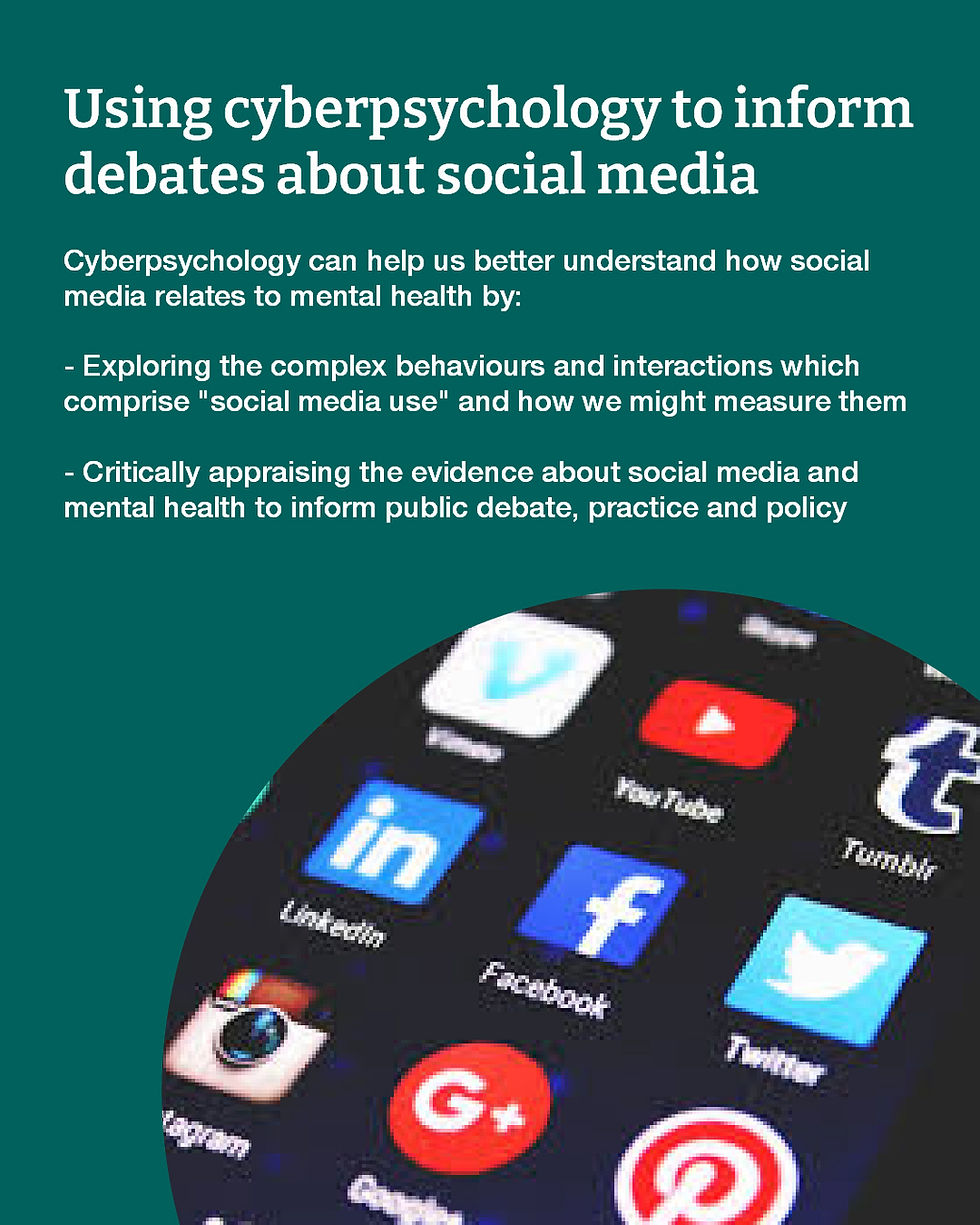What Can Facebook “Likes” Reveal About Our Personal Characteristics?
- LindaKKaye

- Feb 3, 2025
- 3 min read
Updated: Mar 18, 2025
Authored by Luiza Quinn* & Linda K. Kaye
*Luiza Quinn is currently a BSc (Hons) Psychology Student at Edge Hill University
Every time someone interacts with online content, they are leaving a digital footprint. Psychologists have begun to investigate this field of digital traces and are obtaining fascinating results. Here is an example of a study that helps us understand what characteristics are revealed based on Facebook Likes.
Kosinski et al. (2013) explored the use of Facebook Likes to see if they could be an accurate marker of user characteristics. “Likes” are a mechanism utilised by Facebook users to associate themselves with specific online content, such as a funny video or a friend’s status update, and importantly are publicly available by default. Intriguingly, the researchers explored to what extent private attributes including sexual orientation, use of addictive substances and religious and political views could be accurately inferred from a users’ ‘Like’s.
How Was This Done?
The researchers analysed Facebook Likes and received detailed demographic profiles from online surveys for over 58,000 American volunteers. Several psychometric tests were also utilised for some of the volunteers. This included measures of personality (International Personality Item Pool questionnaire), intelligence (Raven’s Standard Progressive Matrices) and well-being (Subjective Well-Being Scale). With this data in mind the researchers used a model which analysed numerical (for example a score for intelligence) and dichotomous (for example sexual orientation whereby the individual is either/or) predictive variables using the Facebook Likes.
The model was asked to predict:
· Sexual orientation
· Ethnic origin
· Political views
· Religion
· Substance use (“alcohol,” “drugs,” “cigarettes”)
· Whether an individual’s parents stayed together until the individual aged 21
· Age
· Gender
· Relationship status
· Size and density of the friendship network.
· Personality
· Intelligence
· Satisfaction with life
So What Did They Find?
Interestingly, the model had the highest accuracy rates for ethnic origin and gender at 95% and 93%, respectively. This shows that users’ Facebook Likes were significantly distinct enough to the point of where the model was accurate near to perfection. The model’s ability to predict whether a volunteer’s parents stayed together or separated before users were aged 21 had the lowest accuracy at 60%.
These results show that a wide variety of individual’s personal (and oftentimes private) attributes can be inferred accurately through Facebook Likes. Predicting users’ individual attributes and preferences can improve targeted products and services. However, there may be negative implications because this type of model can be applied to large numbers of people easily and without obtaining their individual consent or perhaps awareness. As a result, this could pose a threat to well-being, freedom, or even life.
Here Are Some Examples Of The Best Predictors From Facebook Likes:
Characteristic |
‘Like’d Content |
High intelligence
| “Thunderstorms” “The Colbert Report” “Science” “Curly Fries” |
Low intelligence
| “Sephora” “I Love Being A Mom” “Harley Davidson” “Lady Antebellum” |
Male homosexuality
| “No H8 Campaign” “Mac Cosmetics” “Wicked The Musical,” |
Male heterosexuality
| “Wu-Tang Clan” “Shaq” “Being Confused After Waking Up From Naps” |
Interestingly digital records of behaviour could provide a new way to measure psychological traits. Automated assessments based on large samples of online behaviour from an individual may be able to detect trends across time, be more accurate and be less prone to cheating and misrepresentation. This research opens new doors for theoretical research in human psychology.
Article citation
Kosinski, M., Stillwell, D., & Graepel, T. (2013). Private traits and attributes are predictable from digital records of human behavior. PNAS, 110 (5), 110 (15), 5802-5805. https://doi.org/10.1073/pnas.1218772110



Comments